The memories that remained from “Eternal Train”!/Thanks to Reza Attaran and friends – Mehr News Agency Iran and world’s news
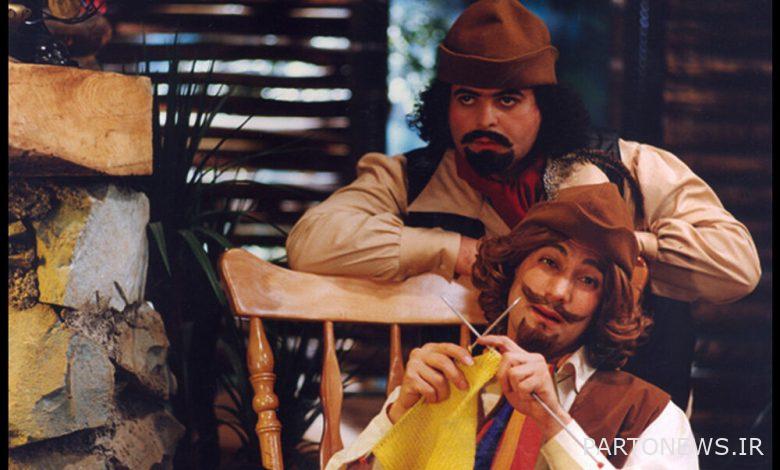
Mehr News Agency – Art Group – Alireza Saidi: The function of the title is something similar to a book cover, whose designer tries to inform the audience of a work by selecting elements, forms and arrangements with the help of graphics and music. The conditions that he presents to the audience are sometimes very careful, thoughtful and calculated, and sometimes they are made so coldly and based on the fulfillment of a mandatory task that they take the viewer away from the basis of a visual effect.
What became an excuse to return to the keyword “credits” once again is a review of the most lasting and memorable music related to some programs and movies and television works, which for many audiences include bitter and sweet memories, and refer to them again for us every Circumstances can bring a world of memories. The memory game, which after its launch and publication in Nowruz, was welcomed by 1400 audiences, prompted us to entrust our souls and minds to it in the form of a weekly memory game on Fridays every week, and from its passage to the years when we are better than these troubled days. It was, let’s go.
“Memories with lasting titles” is the title of a series of archival reports with the same approach, which you can follow on a weekly basis in the art group of Mehr News Agency.
In the seventy-seventh issue of this media narrative, we went to the title music of one of the leading mixed series in the seventies of television, which, due to the presence of a group of the best and most talented artists of that era in the field of comedy, became one of the most popular and attractive mixed series in the media. Melli will be nicknamed even by this time.
A series called “Eternal Train” written by Bahman Motamedian, Soroush Sahet, Shima Bahraini, Sina Saeed Waziri, produced by the unforgettable couple Bijan Birang and Masoud Rasam and directed by two popular artists of that time, Behrouz Baghai and Reza Attaran, between 1978 and 1979. The third channel of Sima was in front of the audience. A collection of items that can be introduced as a continuation of the generation of collections such as “Broubia Neighborhood”, “Health Neighborhood” and “Yike Bode Yike Nabude” which were able to leave a great impression on the audience of those years and remain a form and image. Let it be that his adult audience was not less than teenagers.
Of course, regardless of what was presented to the audience and viewers of those years of television in the content of this combined series, this group was the writers and actors of the “Eternal Train” series, who were able to present a space in front of the viewers with a dream combination of veteran and young actors. To be honest, in presenting the game and styles related to this production field, television programming included differences and even less experienced features, an experience that was more or less experienced in the “Sib Khande” series, and led to the emergence of actors who Honestly, in these years, they have become trend-setting and audience-friendly actors, whose presence in the box office is a guarantee for billions of sales.
To listen to a piece of music related to the item “Hasan Kachel” Here Click the
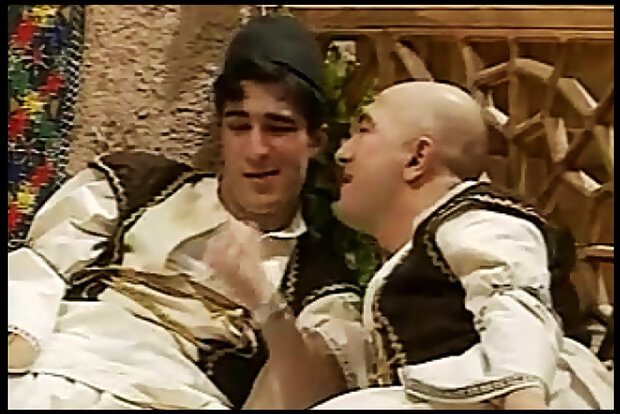
Farhad Ayish in the role of Manouchehr and the father of a normal family, Mehrane Mahin Tarabi in the role of Naheed and the mother of a normal family, Shiva Balurian in the role of Mina, the daughter of a normal family, Nima Fallah in the role of Nima and the son of a normal family, Hamid Lolaei in the role of Neron – the minister of the king and the patient Psychic, Majid Sal in the role of Robin Hood – Hassan Kachel and a mental patient, Nematullah Gurji in the role of the king, Hamida Khairabadi in the role of Hasan Kachel’s grandmother, Sosan Maqsoodlou in the role of Shahrazad’s grandmother, the storyteller, Mohammad Reza Haqgou in the role of Dr. Javaid Javadi and Senka, Reza Attaran as a mental patient, Khosrow Ahmadi as a minister, Khashayarrad as a narrator, Farhad Bashari as John Kochike, Sahar Zakaria as Marian, Behrouz Baghai as a narrator, Mehran Dighmi as Robin Hood’s son, Dana Rassam as Robin Hood’s daughter. They were among the main actors of the “Eternal Train” series.
Artists who, thanks to the abilities of Behrouz Baghai and Reza Attaran, produced a series for the television audience of those years, whose avant-garde stories, social issues, and jokes different from cartoons and memories of the 60s generation created an atmosphere that, unfortunately, was rarely witnessed during these years. We are implementing a valuable experience in this field.
To listen to the music of the item “Neron” Here Click the
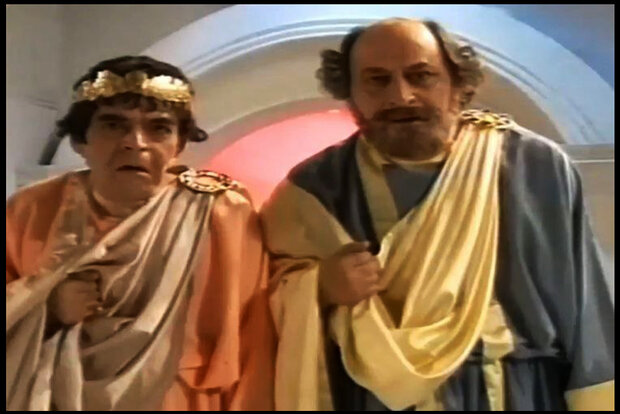
A very precious experience for people like Reza Attaran and his contemporaries who, due to the presence of experienced producers such as Bijan Birang and Masoud Rasam, who, along with other veterans of the acting field, showed that if the seasoning of creativity and innovation is valued in the true sense of the word in a project What can be done from the various stories hidden in the culture of this land to provide social and even critical teachings without the slightest insult and disrespect. After this approach, items such as “Hasan Kechel”, “Sherzad the Storyteller”, “Neron”, “Robin Hood” were born and created a situation where many TV viewers remember their favorite actors with the same type and personality. They bring.
What was presented to the audience in this nostalgic atmosphere was the effort of a group of the best of television in those years, who made a risky path for programming by creating memorable characters in popular stories for children and teenagers, and they honestly came out victorious and tried to A work to be placed in front of the audience, which was strongly signed. A signature that showed its commonality in the soundtrack and credits and created the conditions for the three pieces of this work to be noticed by viewers in those years.
To hear the musical piece of the item “Robin Hood” Here Click the
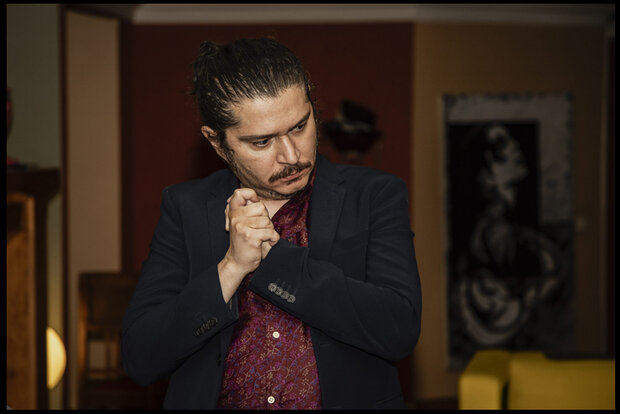
The music, due to a talented artist named Ali Birang and the different structure he designed for the music of this series, became a fantasy music that the viewer could identify with. identical Basically, this type of music includes sensitive points that the composer’s interaction with the directing team is undoubtedly the most important component that should be emphasized. The atmosphere that we sometimes witnessed that when the composer moves outside of this flow, the work reaches nowhere, that no trace of the music of a certain series can be found in the internet posts. An idea that was also experienced in series such as “Duniya Shirin”, “Duniya Shirin Darya” and “Sib Khande”, but what was presented by Tehrabdi was definitely different than all of these. Moreover, the presence of an innovative and different artist like Reza Attaran, who also knows music, became an additional reason for the composer’s creativity.
It was not long ago that in one of his media interviews, Birang said by digging into the past and recalling his previous works: As far as I can remember, around the age of five, music was the only thing that surprised me and made me lose myself. It was at that age that I was gifted a mouthpiece. That instrument was the only musical instrument we had and my father could play an Azeri song with it. I also practiced enthusiastically until after a while, wherever I sat, I was asked to play the harmonica. From the age of five to eight, I didn’t have an instrument, but there was a Casio synthesizer at one of our relatives’ houses, and I could play with that instrument once a year during Eid. I considered the value of that instrument to be the same as gold and jewelry, and that’s when I realized that I was made for music.
I could not have an instrument until I was 8 years old, but I had a father to whom I owe. He recognized my talent and finally bought me an instrument at the age of 8 and got me a teacher, but I didn’t like to be obedient and follow. I wanted to make changes in everything I learn, and that’s how I realized that I like composing more than playing, and playing became a tool for me to create. At the age of 13, I entered the music conservatory and received a diploma in classical piano playing. I continued the same course in the university. Before going to the conservatory when I was 12 years old, a series produced by my father, Bijan Birang, called “Sweet World” was made, and I was entrusted with the production of its titles at the suggestion of people around me.
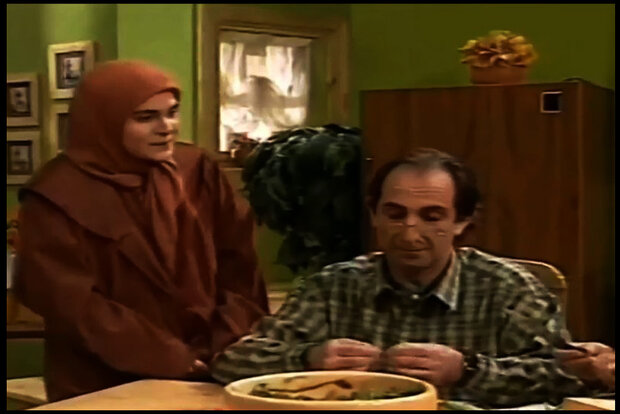
He continued: “The academic period was annoying for me because not only was I not encouraged during that period, but I was constantly fighting with those who thought that my father bought the title music I worked on from another composer and published it under my name.” Of course, maybe this made me think bigger and I always dreamed of doing something that would not have any problems. I owe it to my dreams, but as we get older, we seem to be robbed of our dreams. Today, on the verge of turning 40, I am looking for solitude and solitude so that I can dream again. I want to go back to the same age as a child again, because in the world of adults, everyone believes in not being, but children always think about becoming.
In any case, basically, this type of music includes sensitive points that undoubtedly the composer’s interaction with the directing team is the most important component that should be emphasized. The space that we sometimes saw that when the composer moves outside of this flow, the work reaches nowhere, where no trace of the music of a certain series can be found in the internet. A process that was not seen at all in the musical structure of the “Eternal Train” collection, and it was the avant-garde and less experienced music of different parts of the items that gave it a different color and effect.

